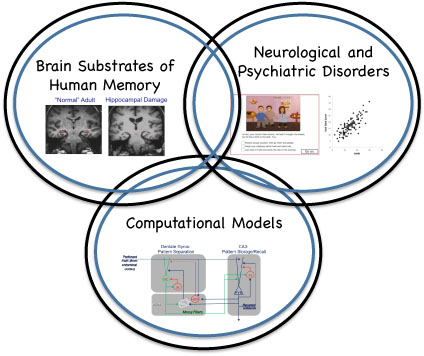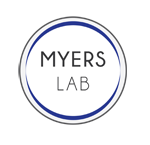Welcome to the Myers Lab!
Our lab conducts research on learning and memory, and how it is disrupted following injury or disease. Much of the research focuses on the hippocampus and associated brain structures, and how they function in normal individuals, and also in patients with conditions such as Alzheimer's disease, amnesia, post-traumatic stress disorder (PTSD), drug addictions, and other disorders. A recent area of interest is understanding the cognitive processes that underlie suicidality, with the goal of being able to detect and predict when individuals enter a period of high risk for suicide.
To conduct this research, our primary tools are human experimental psychology, often using simple computer-based tests to probe how individuals learn and generalize, and computational neuroscience, building neural network models to simulate the brain systems involved in learning and generalization -- and how these brain systems are altered by injury and disease.

In addition to better understanding of how we learn and remember, this work also has clinical applications, such as designing simple behavioral tests to assess the function of specific brain regions. These tests might in the future help us better diagnose conditions such as Alzheimer's disease in the very early stages of the disorder -- before serious clinical symptoms arise. They may also help us better monitor individuals at risk for suicide, to detect warning signs of upcoming risk for suicidal behavior, so that clinical resources can be better targeted to those individuals when they need them most.
Please check the publications page for a listing of recent articles describing our research. We are also building a library of open access software that includes executable files for behavioral studies as well as computational modeling; this software can be freely downloaded and used for scientific (non-commercial) purposes.

Contact: Catherine.Myers2@va.gov
Copyright © 2016 by Catherine E. Myers
